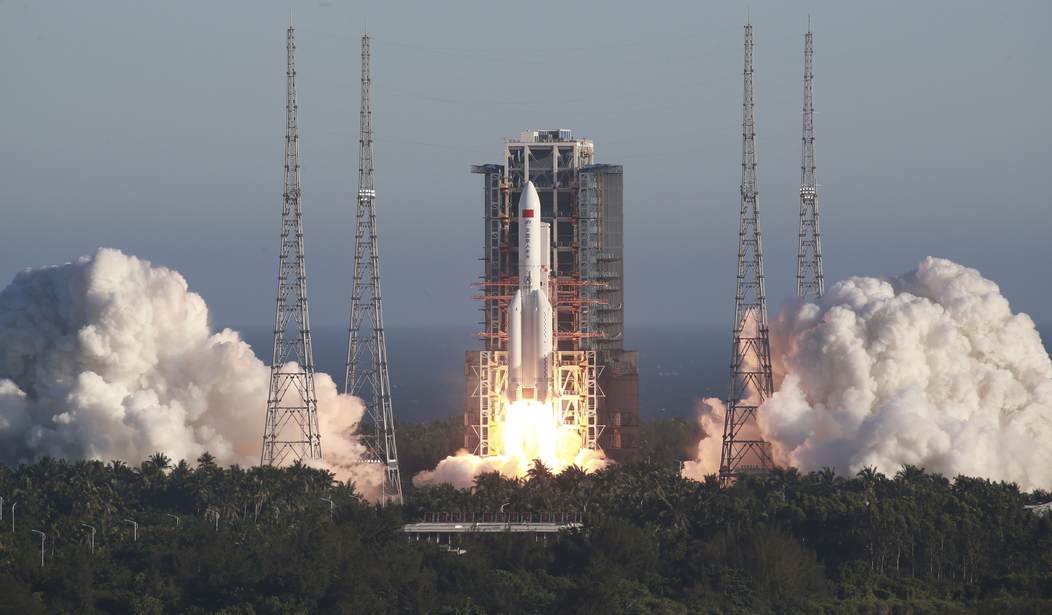Europe’s first orbital rocket launch may have ended in a fiery splashdown, but the folks at Isar, the German startup behind the mission, are still calling it a win. On Sunday, the Spectrum rocket blasted off from the Andøya spaceport in Norway’s rugged Arctic north at 6:30 a.m. EDT. Less than a minute later, it was smoking, spinning, and crashing back into the icy sea. To conservatives who value grit and practical results over flashy headlines, this sounds less like failure and more like a hard-earned step forward.
Drone and pad footage from Isar Aerospace's Spectrum launch. You can see it avoided the pad when it came down. pic.twitter.com/NePozHqYad
— NSF - NASASpaceflight.com (@NASASpaceflight) March 30, 2025
Isar framed it as a test run from the start—not a grand ribbon-cutting, but a chance to gather real-world data. “This allowed the company to gather a substantial amount of flight data and experience to apply on future missions,” they said in a statement. After the rocket’s flight was cut short at 30 seconds, it didn’t just flop into the ocean—it fell “in a controlled manner” into a designated safe zone, thanks to its termination system kicking in. That’s not chaos; that’s engineering doing its job.
This wasn’t just some stunt. It was Europe’s first stab at launching an orbital rocket from its own soil, a move to elbow into the space race that’s heating up faster than a welding torch. Orbital rockets like Spectrum are workhorses, built to haul satellites and cargo into space—not tourist joyrides for billionaires. Sweden and Britain are already eyeing their own slices of the commercial spaceflight pie, and Europe wants to be a hub for these missions. For a continent that’s leaned heavily on others—like Russia or the U.S.—for launches, this is about self-reliance, a principle conservatives can get behind.
Isar Aerospace 🇳🇴 Photo Robin Brillert Wingmen. pic.twitter.com/XgNzOKhVov
— 𝕰𝖑 𝕲𝖊𝖓𝖈𝖔 🇪🇸 (@Genco31304120) March 31, 2025
The launch itself was a majestic scene: jagged, snow-dusted mountains framing a rocket roaring upward, only to stall, flip 180 degrees, and plummet into the sea before exploding. Harsh Arctic weather had already delayed the liftoff for over a week, testing the team’s resolve. Yet, the European Space Agency’s Director General, Josef Aschbacher, saw the upside. “Success to get off the pad, and lots of data already obtained,” he posted on X. “Rocket launch is hard. Never give up, move forward with even more energy!” That’s the kind of no-nonsense attitude that resonates with folks who believe progress comes from persistence, not perfection.
To the human eye, this isn’t about coddling failure or spinning a loss into a participation trophy. For example, Falcon 1, SpaceX's first rocket, had three failures out of five total launches before achieving orbit. It’s about recognizing that big wins—like putting Europe on the space map—don’t come cheap or easy.
Isar’s team got their bird off the ground, tested their systems under real conditions, and walked away with hard data to refine their next shot. That’s not a flop; it’s a foundation. In a world where too many expect instant success, there’s something refreshing about a group willing to take a punch, learn from it, and gear up for round two. Europe’s space ambitions are just getting started—and that’s a mission worth rooting for.
Editor's Note: Every single day, here at RedState, we will stand up and FIGHT, FIGHT, FIGHT against the radical left and deliver the conservative reporting our readers deserve.
Help us continue to tell the truth about the Trump administration and its major wins. Join RedState VIP and use promo code FIGHT to get 60% off your membership.















Join the conversation as a VIP Member